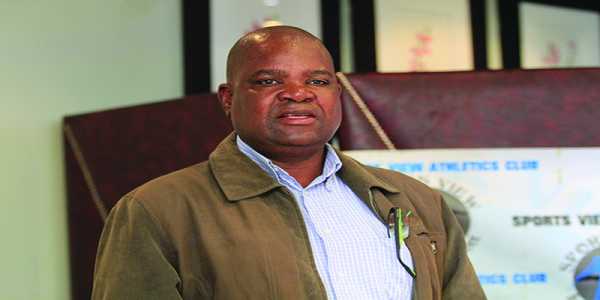IAAF gender shunt hits home
ATHLETICS
The new announcement by the International Association Athletics Federation (IAAF) to ban female athletes who have a Difference of Sexual Development (DSD) or naturally high natural testosterone levels from competing in events such as the 400m, hurdles, 800m and 1500m has sent shockwaves through the international track and field community. The Botswana Athletics Association (BAA), who affiliate to the IAAF are unlikely to be spared.
News about the new IAAF ruling broke last week and since then, stakeholders have been pointing fingers at the IAAF leadership and accusing it of discrimination and wanting to eliminate or slow down the performance of certain athletes. So dire is the situation that one reputable sports lawyer from South Africa recently resigned from the IAAF committee over allegations that the law was deliberately attacking one of their own, being elite middle-distance runner Caster Semenya.
According to a report from IAAF, the new regulation is meant to create an even playing field for all female athletes. Any athlete whose testosterone level is above the ‘normal’ level of 5 nmol/L should reduce their blood testosterone level for a continuous period of at least six months possibly through the use of hormonal contraceptives. According to the IAAF press document, the concerned athletes are seen as having an unfair advantage over those referred to as average women. However, athletes who do not wish to lower their testosterone levels will still be eligible to compete at competitions that are not international but can also compete in the male classification at all competitions.
In an interview with BG Sport this week, the president of the Confederation of Athletics Africa (CAA) also former Botswana Athletics Association(BAA) Moses Bantsi said they are baffled by the new developments. He said as Southern Africa they feel the new law is questionable to some extent and it is not wrong to conclude that as suspected certain individuals might be targeted.
As CAA, Bantsi said they are very blunt with their take on the matter and still pounding on the matter. “It is a violation of human rights because those athletes were not self made but naturally born that way. IAAF tried to bring about this law about four years back, now it has resurfaced again, we will see how best to deal with it,” Bantsi said.
Bantsi questioned the reason behind IAAF discriminating events, “Why are they banned from middle distance events not the other 44 track and field events. This raises a lot of eyebrows on our part,” he said.
The rule he said is most likely to be expensive for BAA because they will be forced to buy equipment that will be used to test the level of testosterone in athletes. In his opinion, the equipment might not come cheap and also this might have a negative implication on some local athletes.
For his part, BAA president Thari Mooketsi, said there is nothing wrong with the new law, in fact he feels it is a move in the right direction. Mooketsi said it is not fair that an athlete should have an added advantage over others when competing saying the results will not be fair.
“As much as we want to celebrate good results they should be fair, we are not discriminating anybody because we have categories in athletics and that is why we have people living with disabilities racing alone,” Mooketsi said.
Mooketsi said the only unfortunate part about it is that athletes with high testosterone levels will not be able to compete because there are a limited number of them. Commenting on the matter, Botswana National Olympic Committee (BNOC) Chief Executive Officer Tuelo Serufho said as BNOC they are yet to find a stand on the matter, however in his opinion the matter is a bit tricky to handle.
Serufho said it should be noted that the athletes did not dope or have done anything to enhance their performance but were born like that so it might be unfair on them. On the other hand, Serufho felt that it was still unfair on those women who are considered to be average. “It is a delicate issue and needs delicate balancing.”
One controversial gender debacle that once hit local athletics was that of former Paralympic sprinter Tshotego Morama. After making being established as a star runner Morama faded from the athletics scene some years back. Reasons for cutting his career short are still unknown, however some allege that it was because of his gender struggle, after being viewed be a man competing with female athletes. Morama who now identifies himself as a man won gold at the 2004 summer Paralympics; in 2007 he scooped gold at the all Africa games. The President Paralympics Association of Botswana of David Moatshe said he could not discuss Morama’s case and why he decided to stay away from running, however going into the future, the IAAF new law is most likely to disadvantage and kill careers.
“We do not choose how we are born and for this to happen to any athlete might be discouraging to them,” he said.
Nevertheless, Sports View Runners Club founder Glody Dube said people should relax because the IAAF has a point in bringing the new law. Dube said it is only fair that people compete fairly and those who have added advantage should compete alone. The former 800m runner said it is not like they are being banned from running and there is no need to be press panic buttons. As a coach to some elite athletes in Botswana, Dube said should IAAF find that some local runners have high levels of testosterone in their body he will not mind if they are banned.
Dube said people are usually reluctant to change and with time there might be change of mindset because people are usually slow to react to such matters.






